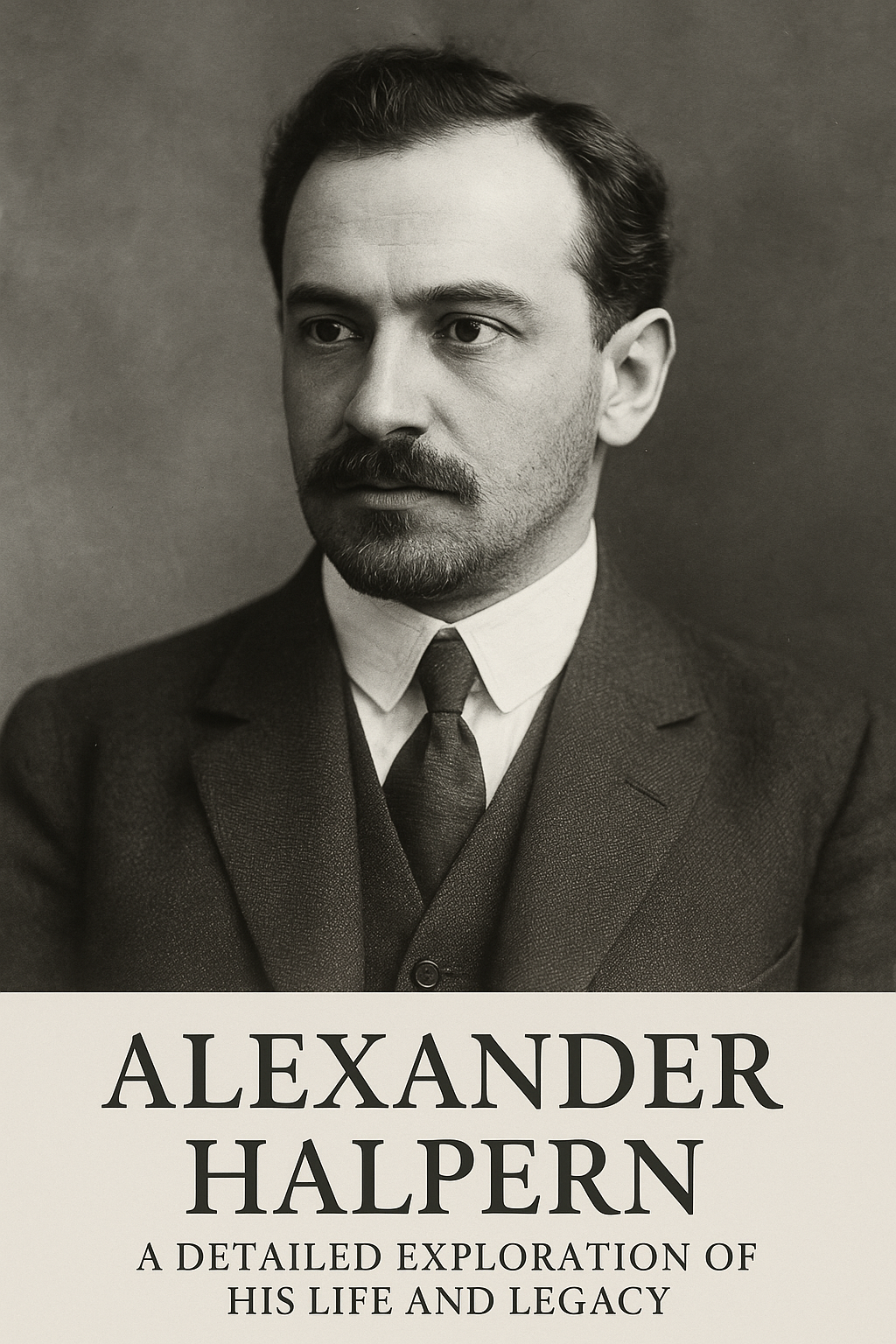Alexander Halpern remains an intriguing historical figure whose life intersected with key political, intellectual, and intelligence movements of the early 20th century. His multifaceted career and diverse contributions have left a lasting imprint, yet many are unfamiliar with the full scope of his story. This article aims to provide a comprehensive look at Alexander Halpern, covering his early life, career, intelligence work, literary contributions, and enduring legacy.
Early Life and Family Background of Alexander Halpern
Alexander Halpern was born in the late 19th century in Russia, into a family embedded within the rich intellectual and cultural milieu of Eastern Europe. Growing up during a period of intense social and political change, Halpern was exposed early to the complexities of the Russian Empire and the waves of modernization sweeping through it. His family valued education and cultural engagement, fostering in him a passion for learning and inquiry.
From an early age, Alexander showed exceptional intellectual promise. He attended some of the most prestigious educational institutions available at the time, where he was exposed to the ideas of liberalism, socialism, and emerging political ideologies that would later inform his worldview. This formative period shaped Halpern’s lifelong engagement with social justice, political reform, and international affairs.
Political Engagement and Revolutionary Involvement
Alexander Halpern’s early adulthood coincided with a period of revolutionary upheaval in Russia. The 1905 revolution and the subsequent political ferment created an environment in which many intellectuals and activists, including Halpern, became deeply involved in efforts to reform or radically change the existing order.
Halpern was affiliated with socialist and reformist circles, contributing to debates on how best to address the pressing social inequalities and autocratic governance in Russia. His political engagement was not just theoretical but practical; he was actively involved in underground movements and political organizing aimed at achieving greater freedom and social justice.
His connections within the revolutionary movements would later position him as a key figure in the intricate world of political intelligence, where the stakes of political maneuvering were extraordinarily high.
Alexander Halpern and His Work in Intelligence
One of the most remarkable aspects of Alexander Halpern’s life is his involvement in intelligence activities, particularly during the chaotic years surrounding the Russian Revolution and the subsequent civil war. Halpern’s skills in analysis, languages, and political understanding made him a valuable asset in the intelligence community.
During World War I and the Russian Civil War, intelligence was critical in shaping the outcomes of battles, alliances, and political decisions. Halpern operated in this shadowy world, often acting as a liaison or operative between various factions. His ability to navigate the complex networks of spies, revolutionaries, and diplomats distinguished him as a figure of subtle influence.
His intelligence work extended beyond Russia’s borders. As geopolitical tensions escalated throughout Europe, Halpern contributed to efforts aimed at monitoring and countering threats from hostile powers, leveraging his deep knowledge of Russian society and politics. This international dimension to his career placed him at the intersection of some of the most significant events of the early 20th century.
Literary Contributions and Intellectual Legacy
Apart from his political and intelligence endeavors, Alexander Halpern was also a committed intellectual and writer. He authored numerous essays, articles, and treatises that reflected his keen insights into history, political theory, and culture. His writing was characterized by a thoughtful analysis of social change and the forces shaping the modern world.
Halpern’s works often explored themes of justice, human rights, and the responsibilities of government. Drawing on his direct experiences in political movements and intelligence, his writings offered unique perspectives on the challenges of governance and the complexities of revolutionary change.
His intellectual contributions have continued to influence scholars and historians who study the revolutionary period in Russia, early Soviet history, and the broader dynamics of political upheaval in the 20th century.
Alexander Halpern’s Role in Post-Revolutionary Russia and Abroad
Following the Bolshevik Revolution of 1917, Alexander Halpern’s position became increasingly precarious. Like many intellectuals and former revolutionaries, he found himself navigating a rapidly changing political landscape dominated by the new Soviet regime.
Halpern chose to leave Russia and spent much of his later life in Western Europe, particularly in Britain. There, he continued his work as an analyst and advisor, maintaining connections with émigré communities and intelligence services. His unique insights into Russian affairs were highly sought after during the interwar years, as Western powers grappled with the implications of Soviet communism.
His ability to bridge Eastern and Western political worlds made him a significant figure in diplomatic and intelligence circles. Halpern’s perspective helped shape Western understanding of Soviet policy and the broader geopolitical balance in Europe.
Personal Traits and Characteristics of Alexander Halpern
Alexander Halpern was known for his intellectual rigor, discretion, and adaptability. Colleagues described him as a man of quiet determination, capable of navigating complex and dangerous political environments without losing his ethical compass.
His multilingual abilities—fluent in Russian, English, French, and German—allowed him to engage with diverse audiences and forge connections across cultural divides. This linguistic skill was particularly important in his intelligence work and diplomatic efforts.
Despite the often clandestine nature of his career, Halpern maintained a commitment to principles of justice and freedom, which guided his actions throughout his life.
Legacy and Influence of Alexander Halpern
Alexander Halpern’s legacy is multifaceted. As a revolutionary thinker, intelligence operative, and writer, his contributions spanned multiple domains and impacted many areas of 20th-century history.
In academic circles, his writings continue to be referenced for their nuanced analysis of revolutionary Russia and early Soviet politics. His intelligence work has been studied for its role in shaping Western responses to Soviet expansionism.
More broadly, Alexander Halpern represents a generation of intellectuals who lived through dramatic social transformations and sought to influence the course of history through both ideas and action. His life story is a testament to the complexity of political engagement in times of crisis.
Read also: aajkitajikhabar.com Business: Transforming Digital News Landscape
Conclusion
Alexander Halpern’s life was shaped by the tumultuous events of the early 20th century, yet his contributions remain relevant today. His work as a political activist, intelligence operative, and intellectual provides a window into the challenges and possibilities of that era. Understanding Alexander Halpern’s story enriches our grasp of history, politics, and the enduring human quest for justice and freedom.




